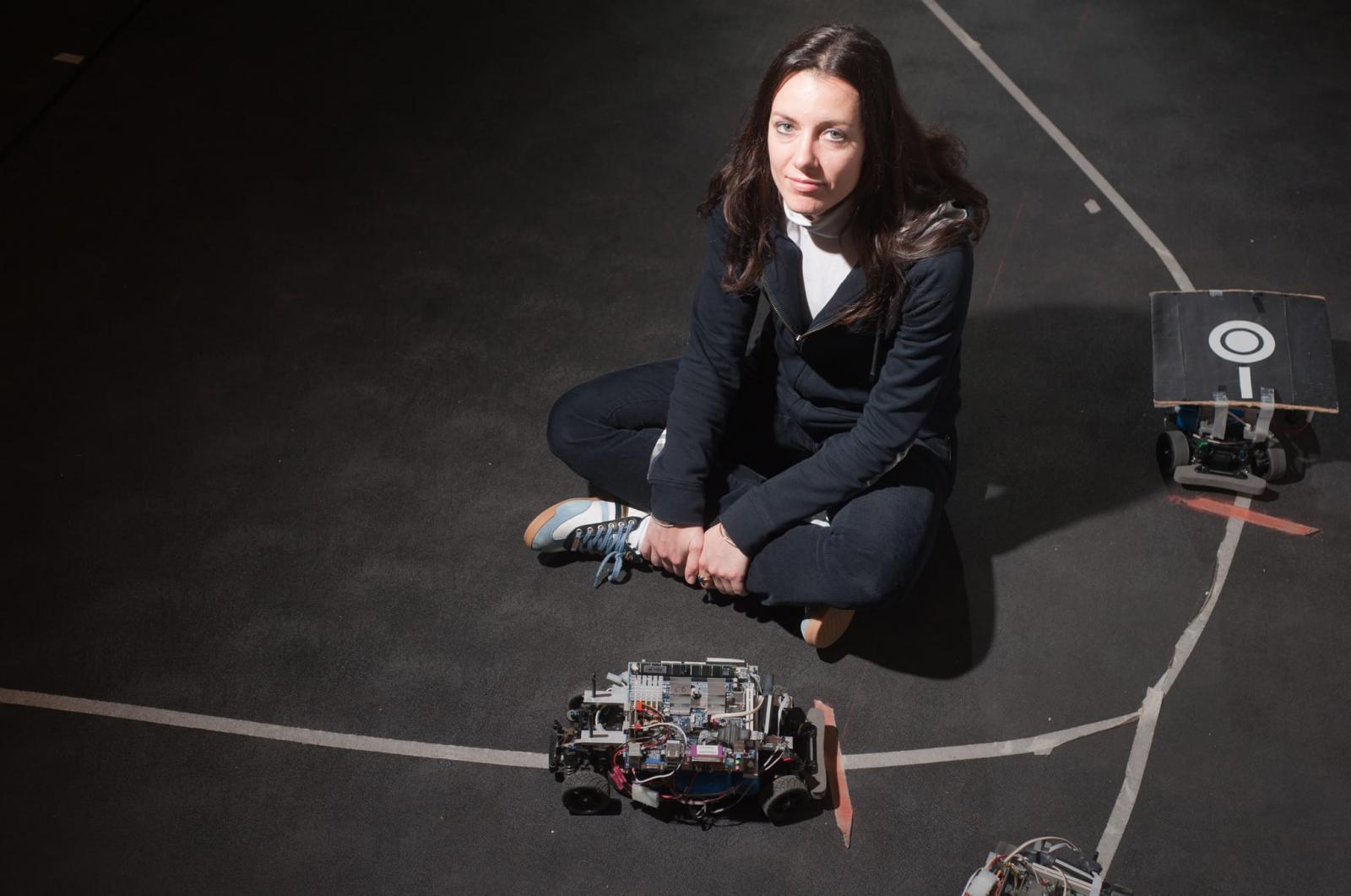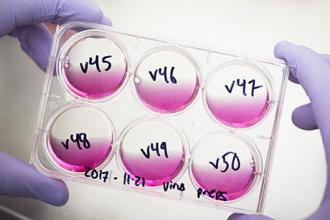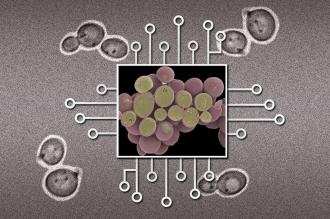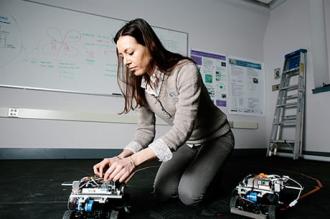
Professor
Domitilla Del Vecchio
George N. Hatsopoulos (1949) Faculty Fellow in Interdisciplinary Research
Interests
- Control and Dynamical Systems Theory
- Systems and Synthetic Biology
Professor Del Vecchio News + Media

Understanding and treating disease
MechE researchers across a diverse range of specialties are developing new and innovative ways to deepen our understanding of disease and unlock new therapies to treat it.

New Device Could Make Large Biological Circuits Practical
A new device developed by a team of MIT researchers could greatly reduce the unpredictability of combined biological circuits.

Domitilla Del Vecchio Bridges Math, Engineering, and Biology
Domitilla Del Vecchio carries out pioneering work in the creation of biological circuits at the intersection of biological, mechanical, and electrical engineering.
Faculty Details
Education
-
1999
UNIVERSITY OF ROME TOR VERGATA
Laurea in Electrical Engineering -
2005
CALIFORNIA INSTITUTE OF TECHNOLOGY
Ph.D. in Control and Dynamical Systems
Research Interests
Del Vecchio’s group focuses on model-based analysis, design, and control of biomolecular networks in living cells. The objective is to make the engineering of synthetic genetic circuits in living organisms more robust to context, modular, and hence more scalable. One of our target applications is the design of synthetic genetic circuits that control cell fate to produce patient-specific somatic cells for regenerative medicine. Our approach is grounded on rigorous mathematical analysis of physics-based models of biological network dynamics, on control-theoretic tools for design, and on theory-educated experiments in living cells, from bacterial to mammalian.
Bio
Domitilla Del Vecchio received the Ph. D. degree in Control and Dynamical Systems from the California Institute of Technology, Pasadena, and the Laurea degree in Electrical Engineering (Automation) from the University of Rome at Tor Vergata in 2005 and 1999, respectively. From 2006 to 2010, she was an Assistant Professor in the Department of Electrical Engineering and Computer Science and in the Center for Computational Medicine and Bioinformatics at the University of Michigan, Ann Arbor. In 2010, she joined Department of Mechanical Engineering at the Massachusetts Institute of Technology (MIT), where she is currently an Full Professor and member of the Synthetic Biology Center. She is a recipient of the 2016 Bose Research Award (MIT), the Donald P. Eckman Award from the American Automatic Control Council (2010), the NSF Career Award (2007), the American Control Conference Best Student Paper Award (2004), and the Bank of Italy Fellowship (2000).
Honors + Awards
- International Federation of Automatic Control Fellow (2022)
- IEEE Fellow (2021)
- Newton Award for Transformative Ideas during the COVID-19 Pandemic (2020)
- NSF Understanding the Rules of Life Award (2018)
- Bose Research Award (2016)
- AACC Donald P. Eckman Award (2010)
- Keck Career Development Chair, MIT (2010-2013)
- NSF CAREER Award (2007)
- Crosby Award, University of Michigan (2007)
- Bank of Italy Fellowship (2000)
- Engineering Fellowship, University of Rome Tor Vergata (1994-1999)
Memberships
- IEEE
- Control Systems Society (CSS)
- ASME
- SIAM
- AAAS
Teaching
2.004, 2.151, 2.18/6.057